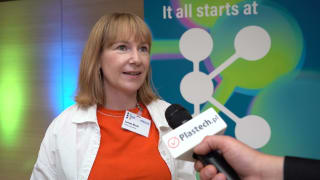 The municipal waste management company Berliner Stadtreinigung (BSR) and BASF have successfully completed a joint pilot project involving the use of organic waste bags made of the biodegradable plastic Ecovio FS.
The municipal waste management company Berliner Stadtreinigung (BSR) and BASF have successfully completed a joint pilot project involving the use of organic waste bags made of the biodegradable plastic Ecovio FS. In September 2011, more than 21,000 households in the districts of Prenzlauer Berg and Hellersdorf each received a test package with 10 organic waste bags. Moreover, 3700 households in Hellersdorf were additionally given a pre-sorting kitchen container to make it easier to collect organic waste. Approximately 80% of the residents surveyed were satisfied with the bags for collecting the organic waste. Incorrect disposal, in other words, the number of conventional, non-biodegradable bags that ended up in the organic waste bins, fell sharply during the trial. In Prenzlauer Berg, incorrect disposal fell by 37% and in Hellersdorf by as much as 67%. The amount of organic waste collected during the project was very encouraging and increased by about 10% in the fourth quarter of 2011. This rise ran counter to the normal seasonal trend: During the same time span, the quantity of organic waste in other districts of Berlin fell by 20%.
Each participating household received the test package with the organic waste bags made of BASF’s biodegradable and compostable plastic Ecovio FS by bulk mail together with information material, free of charge. The residents were asked to use the bags to collect their organic waste in the following three months.
Results of the pilot project: improved hygiene in organic waste collection
According to a survey by the University of Mannheim, which had already conducted the analysis of a previous project, almost 80% of residents in both of these Berlin districts were satisfied or very satisfied with the new organic waste bags. Previously, almost 30% of those surveyed had not regularly separated their organic garbage because of the dirty collecting containers, while 23% had not done so because of the unpleasant odor.
Thanks to the Ecovio bags, the disposal of biodegradable garbage is cleaner, more hygienic and less complicated. The bags not only prevent odors and keep out insects, but also mean that it is no longer necessary to wash and clean the container in which the organic waste is collected. The air-permeable Ecovio bags also ensure that the organic waste dries and smells less than it does in conventional bags. Consequently, the Ecovio bags are easier to handle since they do not have to be taken out of the kitchen every day. The bags are predominantly bio-based and meet European standard EN 13432 for compostable plastics. In accordance with the amendment to the German Organic Waste Regulations at the end of 2011, the bags can be used to collect organic waste.
“For us, it was crucial that the residents accepted the bags, that incorrect disposal decreased, and that organic waste collection was more convenient for the residents. A higher level of acceptance for organic waste collection also contributes to increasing the volumes of separated waste. Starting in 2013, our fermentation plant will produce biogas to power our garbage trucks and the fermentation residues will then be processed into compost,” explained Frieder Söling of Berliner Stadtreinigung (BSR).
The Kanthak & Adam engineering office, a consulting firm for projects involving waste management in Berlin that looked into the quality of the organic waste and of the compost, drew a positive interim balance: “After two-thirds of the composting time, the bags made of Ecovio FS had degraded in the composting plant and did not adversely affect the quality of the compost,” said Manfred Kanthak of Kanthak & Adam.
The biodegradable plastic Ecovio® FS is a new BASF development. This material is made of the partially bio-based plastic (polyester) Ecoflex® FS and PLA (polylactic acid), which is obtained from corn starch by means of fermentation. Thanks to this combination, the bags used in the Berlin pilot project consist predominantly of renewable raw materials. Like the biodegradable waste itself, Ecovio is broken down by microorganisms with the aid of enzymes. This degradation process depends only on the structure of the molecules, not on the origin of the raw materials. At the end of the composting process, the microorganisms have completely converted the bags into carbon dioxide, water and biomass.




